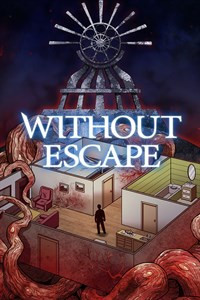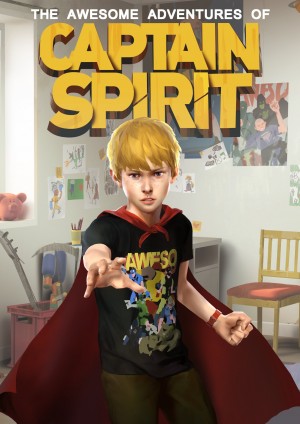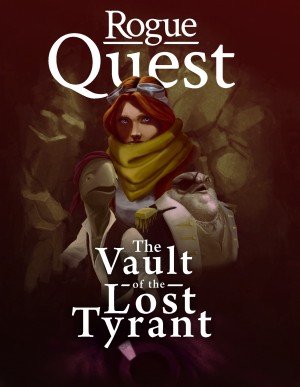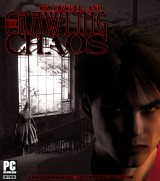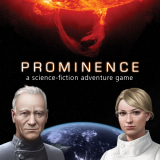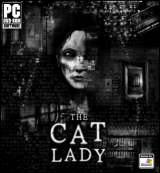Review for Arkhangel: The House of the Seven Stars
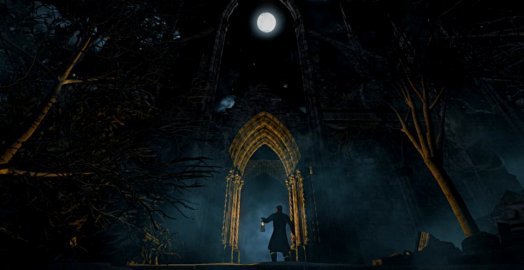
Note: Since time of writing, an update has been released with significant control upgrades, additional setting options, and other enhancements. This review is based solely on the original version of the game.
A conjurer of unfathomable monsters and nihilistic prophecy, H.P. Lovecraft is oft imitated. His interconnected tales of horror, dubbed the Cthulhu Mythos, still resonate with enthusiasts looking for unyielding dread and chilling revelations. Adapting the author’s style for an interactive medium presents certain difficulties, however, as “fun” isn’t a descriptor anyone would associate with his work. Arkhangel: The House of the Seven Stars smartly opts for a story-driven approach, combining Lovecraftian cosmic horror with an alternate take on bible myth, yet a tantalizing concept alone cannot overcome the numerous narrative and design flaws on display here.
Arkhangel is billed as a direct tie-in with the board game The Great Nameless, which I unfortunately don’t have experience with to draw comparison. Nevertheless, I do know that it pertains to an otherworldly force threatening the existence of all humankind: Z’xhuul. (Yes, it in fact does have a name. We were all lied to.)
Even with such grandiose peril writhing behind the curtain, Arkhangel begins simply, at the dusk of the 19th century. Lead character Michael, along with his wife and daughter, take a train with all their possessions to the scant, frostbitten town of Haven, hoping for a fresh start after tragedy befalls their family. Acquainting themselves with a new home and neighbors, they participate in a local tradition known as the Winter Night Festival. When some children go missing after the festivities, Michael joins the search, and soon his wife Lily is bedridden by an inexplicable illness. The quest for resolution eventually leads to imposing ruins, a dilapidated mansion littered with clues to a dark heritage, and catacombs marred by unspeakable rituals. The problem is that the narrative and the tasks given feel laborious until the conclusion draws close, though eventually they culminate in a compellingly convoluted tale of horror.
Over the course of seven chapters (or seven in-game days), you can expect the familiar attributes of a traditional point-and-click adventure: exploring environments, meeting and conversing with various NPCs, and acquiring an inventory of items to determine uses for. An entire town is open to investigate, including various homes and establishments to enter and a bit of forested outskirts to wander – albeit without any real incentive to explore. Books fill shelves for players willing to commit, but much of the text is dry and irrelevant to the overarching plot. However, to fully understand events as they transpire, I would suggest reading all the notes you find scattered about. Make sure to pick up books, whether or not you digest their contents, as notes can sometimes be found tucked between the pages.
Fans of Lovecraft or cosmic horror in general will recognize iconic elements – in particular, how the sinister history of Haven connects to a cult with designs to loose a tentacled god capable of devouring the universe in a single ravenous gulp. Therein, the first scare is rather effective, in large part due to the timing of its inclusion. Otherwise visceral shocks are few, in favor of more meditative darkness. What saves Arkhangel from being just another imitation of Lovecraftian storytelling (replete with the appropriate nomenclature) is how it layers such indescribable evil within the context of biblical creationism. You probably wouldn’t expect these disparate components to coexist. but somehow the pieces align comfortably.
Despite the abundant lore to uncover, Arkhangel’s game world isn’t fully engaging, nor does it feel believable in the way that it intends. There is a decent stock of townspeople to interact with, yet they offer nothing but basic information unless they are directly related to current goings-on. What you learn about them in your initial encounter is typically all you get. At some point, the game insists that you be suspicious of these people, even though you haven’t learned enough on your own to warrant paranoia. At worst, the ship captain is a curmudgeon, while the woman behind the bar generously hands over a quest item even without compensation.
There’s little to discover about the main cast for that matter, save for their hobbies or occupations. Michael is to be the town librarian, though never quite gets around to it. Lily is a painter who interprets her nightmares with a brush. Their daughter Gabrielle likes to build models out of wood. Together they are a caring family, but one that I struggle to describe in greater detail. They eat together and read bedtime stories – you know, conventional activities. And the banter is no more inspired.
Certainly, Lovecraft hardly bothered giving much definition to his characters, choosing instead to explore unsettling ideas and evocative prose. However, he also never gave emphasis to dialogue as Arkhangel does. While there is the occasional subtlety, such as implications of Michael’s alcoholism, average exchanges between characters would benefit from more brevity. In other words, dialogue is exhausting to read or just redundant. As an example: “I’m sorry to trouble you about this, but my wife is suffering from an aching head and Josif needs some pure alcohol to mix an elixir to help alleviate the pain.” The issue isn’t simply that it’s long-winded, but that it’s too factual to afford any personality.
While the general writing stumbles, the ambiance puts forth a solid effort at drawing you in. Snow permeates, wind wrestles with trees, and pronounced shadows reach in the moonlight. A particularly interesting detail is how the number of birds flocking above town increases over the course of the game, becoming acutely oppressive. Architecture is plain but there is an appeal to how it hearkens back to the early era of 3D adventure games. Character models are similarly minimalistic, except they are colored more vibrantly, employing a cartoon-like art style.
Meanwhile, a lush orchestral score blankets the cold town of Haven. Airy strings set a tone both mystical and inviting before taking a sharp turn towards eerie and foreboding. Vocal harmonies add a cinematic quality that punctuates an already memorable soundtrack. My only complaints here are that the theme recurs a bit too often and songs tend to be too short, meaning they loop frequently. Underneath the intricate music are sounds of creaking wood, footsteps in hollow spaces, and the rush of icy gales. All around, the audio is fitting of horror reliant on brooding undercurrents and ghastly findings.
Budgetary constraints for a small team can explain a modest presentation, such as the absence of voice acting, cutscenes that play like slideshows, and a shallow pool of assets. What is indefensible for any game is poor controls, and in Arkhangel you are encumbered by sluggish input response. Worse, the slow walk speed becomes unbearable when needing to traverse large distances in outdoor environments. Default keyboard controls use the common WASD setup, with the Tab key designated for illuminating hotspots and the mouse used to select them, whereas an alternate control scheme trades “camera relative” movement for “tank controls.” The option is appreciated, since tank controls are practically hereditary for 3D games with fixed cameras. Nonetheless, I found this method equally unwieldy, as turning is overly sensitive. Either option you settle on forces you to wait, unable to move, during camera transitions.
Pointing and clicking is, likewise, extremely finicky. You will need to position your character in direct proximity of an object you wish to examine, which is fine until objects are clustered. When this happens, you will have to wriggle to and fro until the game decides you’re standing in the perfect spot to select what you’re after.
Objectives are straightforward: collect the necessary items to progress. Early on, you will need to repair a music box and so must scavenge town for a replacement gear and some oil. Clues for where to find what are fair, and if you ever find yourself lost, Michael’s journal should set you back on the right path. Sometimes you will play from the perspective of Gabrielle, finding a way to distract some adults in order to slip away or constructing a present for her parents. The latter has you combining an assortment of items in your inventory, and if you can’t figure out what any of them have to do with “sunshine,” like me, then it turns into an exercise in trial and error. Other than that particular quandary, you won’t find the challenges especially difficult or the solutions too absurd.
Players must make sure they’re paying attention at all times, as Quick Time Events pop up on occasion. Arbitrary, yes, but they are hardly a nuisance. Tap the space bar repeatedly or hold it down as indicated and you will pass with little effort. I reloaded a couple times to purposely fail some prompts (not a boast) in order to discover what happens, and results range from alternate scenes to Game Over. In the latter case, being able to save anywhere and make use of auto-saves means you shouldn’t run into any major headaches. However, you may discover the hard way that you can fall to your doom from specific ledges. And be mindful if the game explicitly insists you use a lantern in dark caverns, lest you slip and unceremoniously break Michael’s neck.
It takes longer than it should for Arkhangel: The House of the Seven Stars to get its footing, and just when the story tears open new possibilities, it sees fit to conclude somewhere around eight hours in, depending on your thoroughness. The prospect of a sequel is hinted at before the credits roll and my interest is piqued, flaws notwithstanding. With deeper character development, more responsive controls, and a story that doesn’t delay all of its best ideas, a continuation could realize the full potential largely teased at here. For now, the eldritch horrors remain behind the curtain, waiting for their day.


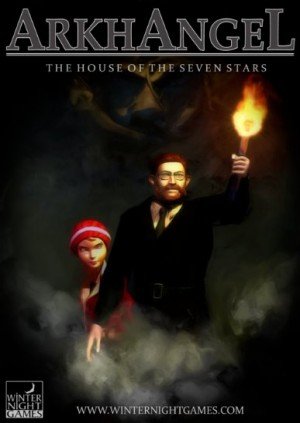
_capsule_fog__medium.png)








